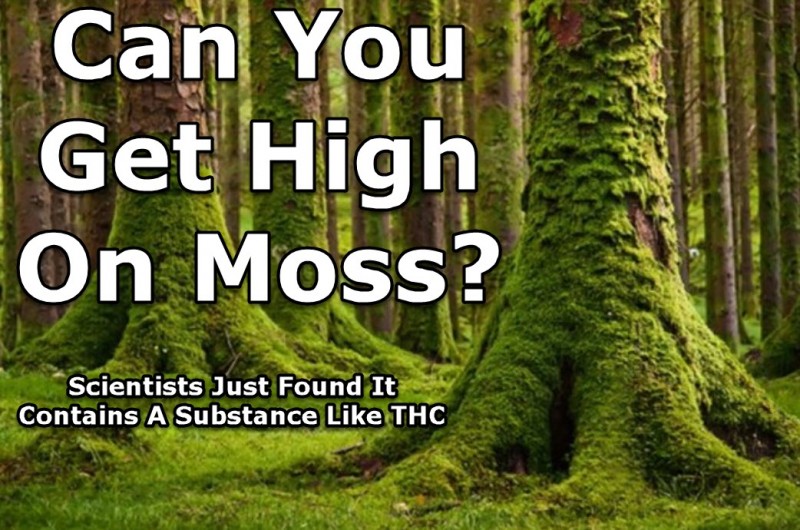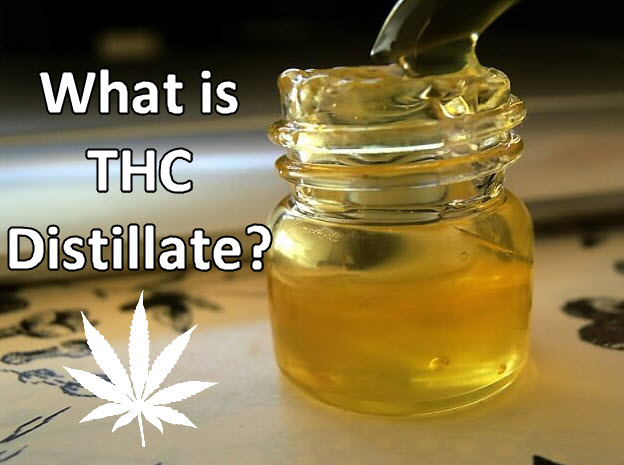Can You Get High On Moss? Scientists Just Found It Contains A Substance Like THC
Seems like cannabis isn’t the only plant out there that can get you high.
A new study conducted on mice shows that a moss-like plant known as liverwort can produce similar effects as tetrahydrocannabinol (THC), the compound in pot responsible for the high. This is interesting news for the scientific community, because we previously thought that cannabis was the only plant in the world that contained THC.
However, in 1994, a Japanese chemist by the name of Yoshinori Asakawa discovered atoms in liverwort which were linked to THC, and he named them perrottetinene. Since then, liverwort was advertised as a plant that can produce a high similar to cannabis but the difference is that it’s legal. But no research has legitimately looked into this.
Swiss researchers from the University of Bern then saw the potential of investigating perrottetinene, since they wanted to know if the molecule similar to THC also had comparable pharmacological effects. Liverwort only has small amounts of this chemical, so to conduct the study, they synthesized the molecule and then used it to experiment on mice and cells. In doing so, they were able to compare the pharmacological effects on mice as well as the differences and similarities between THC and perrottetinene. Specifically, they used cell preparations to see if the perrottetinene molecules activated the same brain receptors in the brain that THC does, and they also checked for potency.
The findings, which were published in Science Advances, yielded interesting results. Apparently, perrottetinene indeed does bind to the same cell receptors as THC, although it’s less potent. They also found that when it was given to mice, the perrottetinene produced the same effects as THC on the mice; both of them caused the mice to move slower and it reduced their body temperatures.
“Curiosity-driven research can lead to interesting results,” said Daniele Piomelli, a University of California professor of anatomy and neurobiology, who wasn’t involved in the study. “This is solid work, very credible, showing that this type of liverwort contains compounds that are akin both in structure and pharmaceutical activity to psychoactive cannabinoids in the cannabis plant,” he says in a Scientific American article.
Additionally, when the researchers examined the effects of perrottetinene on the inflammation pathways in the brain and compared it to THC, they found that perrottetinene helped reduce prostaglandins, molecules that were linked to inflammation, says Michael Schafroth, study author and a postdoctoral researcher at the Scripps Research Institute. On the other hand, THC didn’t have the same effect. “These prostaglandins are involved in too many processes (such as) memory loss, neuroinflammation, hair loss and vasoconstriction,” Schafroth explains. It means that perrottetinene is “highly interesting for medicinal applications, as we can expect fewer adverse effects while still having pharmacologically important effects.”
But before you think you can get high on moss, think again. It’s less potent, which means that it probably won’t be beneficial to anyone who’s thinking of using it for recreational purposes.
In a Newsweek feature, they spoke to Dr. Karen Wright, a Lancaster University lecturer in Biomedical Sciences in the Faculty of Health and Medicine. Dr. Wright didn’t work on the study, but she told Newsweek that she was surprised to find out that cannabinoids are found in plants other than cannabis and that the compound had the same properties as THC. “The implications of this are unknown. It could mean it has anti-inflammatory potential in an inflammatory setting, but could also mean that some key homeostatic function in the brain (or body) is reduced too, with unknown consequences,” she says. “Even though this compound, when smoked, is unlikely to produce the high associated with cannabis, methods to extract and concentrate it could reveal the same problems,” she told Newsweek. “And we’re far from liverwort replacing medical marijuana… Rather it should enter a phase of preclinical study in disease models,” she says.
As more people learn about the medicinal benefits of the various compounds in cannabis, the demand for research and more products continues to grow. But as long as the United States is still living in the era of prohibition, people are going to be driven to find other alternatives. While we have yet to see the benefits of liverwort, other recent discoveries include extracting cannabinoids from yeast.
Can You Get High Smoking Moss? Scientists Just Found It Contains A Substance Like THC from CannabisNet on Vimeo.







